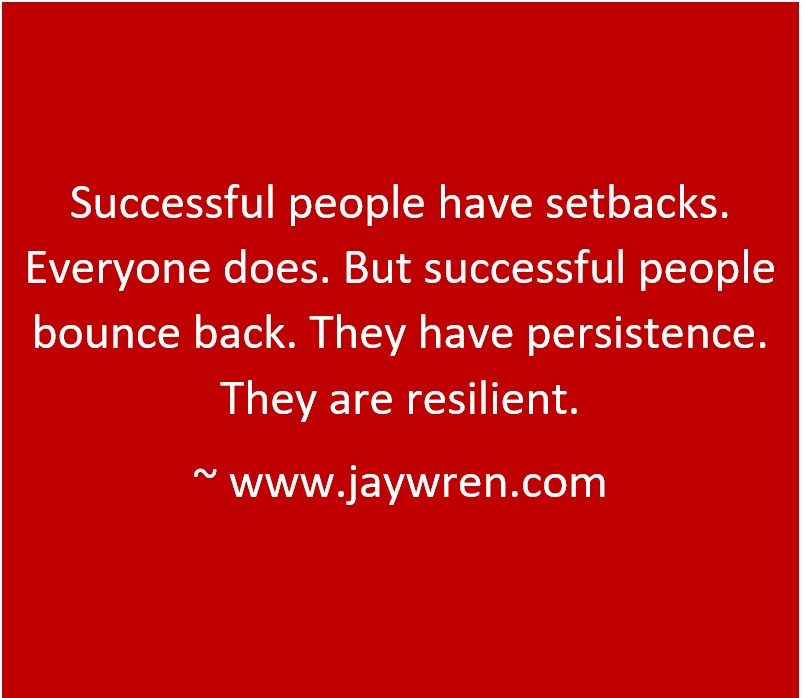Successful people have setbacks. Everyone does. But successful people bounce back. They have persistence. They are resilient.
~ www.jaywren.com
Do you have the qualities of persistence and resilience? If not, how can you develop them?
With persistence, great sports teams come from behind to win the game. Great inventors with persistence work through research and development failures until they have a successful product.
And with resilience, these people can fail and try again until they succeed.
These people are empowered for success.
Persistence and Resilience
Persistence (that is, staying at a task until you achieve success) and resilience (that is, returning to a task to find new ways to achieve success) go hand in hand.
So, what do successful people do to overcome failure?
Push Ahead
In some cases, you may have just encountered a bit of resistance. If you have made progress in learning a new skill, but you hit a step that you can’t complete or perform. Practice is a method of pushing ahead when you run into challenges.
Even with a perfect product and plan, business campaigns can encounter resistance. However, as the participants continue with the campaign, they may find that they become more effective at using the plan. Additionally, they may find new prospects who need the product or service. By simply pushing ahead, these people find success.
And persistent, resilient people double back. They return to people and places where they first found rejection. After finding success, persistent people give their customers and clients a second look at the solutions that their products and services offer. Or, in the case of research and development, they retry experiments or methods to determine if their first efforts had flaws.
Ask Questions
Persistent people don’t walk away without first knowing they have given their best effort. To know, they ask questions about their methods and efforts.
“What can I do differently?”
“Do I need to change my strategy?”
“Is there a better design for my product?”
“Who can help me find new solutions or approaches?”
“Is there a proven method that I should adopt?”
